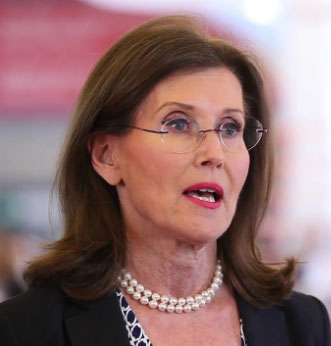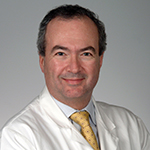23
Mar
2021
17:00
GMT
18:00
CET
Webinar
Cardiac Device Therapy for Heart Failure: An individualized approach
-
Views:
 3165
3165
-
Likes:
 12
12
Overview
In this webinar, international experts review the latest evidence in cardiac resynchronization therapy in light of contemporary heart failure medications and the latest analyses on their combination with implantable cardiac defibrillators.
Specifically, the panel discuss the recent HFA, EHRA and EACVI position paper on the optimized Implementation of CRT and its recommended actions:
- Overcoming the underutilization of CRT therapy
- Evaluating and understanding better the pre-implant characteristics
- Critically evaluating terms such as ‘non‐response’ together with the concept of disease modification
- Implementation of a dedicated care pathway for CRT patients post-implant
Faculty:

Cecilia Linde

Wilfried Mullens

Michael R Gold
This webinar is supported by

Agenda
Learning Objectives
This webinar is to inform cardiologists how to optimize the individual drug and cardiac device therapy to obtain the best patient’s outcome. Specifically, in each examined area, the viewers will gain a unique contemporary perspective on the:
- Underlying behaviors leading to substantial underutilization of CRT therapy (with and without a combined implantable cardioverter defibrillator), how these can be addressed/overcome.
- How contemporary pharmaceutical regimens may be impacting timely CRT referral to the detriment of therapeutic synergies and optimal patient outcomes.
- Analyses and research on the various pre-implant characteristics that can impact the decision to implant CRT therapy and the exact device selection (CRT-D vs CRT-P).
- Historical background and evolution of the term “response” and “non-response” to CRT therapy and why these terms may have been used outside of their appropriate context in a therapy area that is by its nature progressive.
- Level of care that needs to be provided after a CRT device is implanted and practical ways of implementing such pathways across international care settings.
Audience
- Cardiologists and electrophysiologists involved in the implantation and follow-up of cardiac implantable devices for heart failure, such as implantable cardioverter defibrillators (ICDs) and Cardiac Resynchronization Therapy device (CRT)
Faculty Biographies

Cecilia Linde
Prof Cecilia Linde is a professor and consultant in cardiology at the Karolinska University Hospital in Stockholm, Sweden. Her research focuses on epidemiology and devices for use in heart failure.
Her research currently focuses devices and their implementation and epidemiology in heart failure. Cecilia Linde is Vice President of the Board member of the ESC for the period of 2018-2020 responsible for working groups, councils, women, the young and the membership committee and serves as member of the Congress Programme Committee as topic chair for arrhythmia.
Prof Linde is the author of more than 250 papers, reviews and editorials in a wide variety of fields including CRT, haemodynamic monitoring and HFpEF and she serves on the editorial board of several journals. She has been a board member of the European Heart Rhythm Association (EHRA) for which she was scientific programme Chair 2013–2015 and has served on many guidelines writing committees of EHRA and Heart Failure Association.

Wilfried Mullens
Prof Wilfried Mullens is a heart failure clinician with a strong commitment to translational research translating new mechanistic insights into answering questions of clinical interest. He has been president of the Belgian Working Group on Heart Failure and serving as board member of European Heart Failure Association (HFA) leading the committee on cardiac devices.

Michael R Gold
Dr Gold is the Michael E. Assey Professor of Medicine at the Medical University of South Carolina.
He has authored more than 200 articles in peer-reviewed journals, in addition to over 30 book chapters. He has been the PI or served on the Steering Committee of more than 15 multi-national clinical trials. Dr. Gold sits on the editorial board of several peer-reviewed journals, including American Journal of Cardiology, PACE, and the Journal of Cardiac Electrophysiology, and is a Section Editor for Heart Rhythm.
His major clinical research interests are defibrillator optimization, risk stratification for sudden cardiac death and pacing for congestive heart failure, and he is the national or global PI of several clinical studies. He attended medical school at the University of Colorado after completing his PhD in Physiology at the University of Virginia. He completed his postdoctoral training at Massachusetts General Hospital in Boston.
Key References
1. Mullens W et al. Optimized Implementation of cardiac resynchronization therapy – a call for action for referral and optimization of care A joint position statement from the Heart Failure Association (HFA), European Heart Rhythm Association (EHRA), and European Association of Cardiovascular Imaging (EACVI) of the European Society of Cardiology. Eur J Heart Fail 2020, advance access published November 2, 2020
2. Rohde LE et al. Sacubitril/Valsartan and Sudden Cardiac Death According to Implantable Cardioverter-Defibrillator Use and Heart Failure Cause. A PARADIGM-HF Analysis. JACC Heart Fail. 2020 Oct;8(10):844-855





